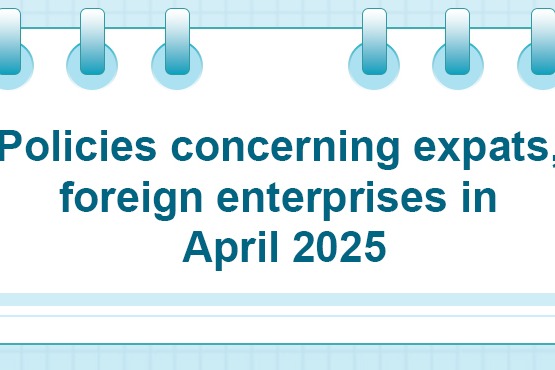New chapter to open on international taxation


To reform the tax system, the OECD released the blueprint for a "two-pillar solution" in October last year.
Pillar one would redistribute some of the taxation rights of multinationals from their home countries to markets where they operate and make profits, regardless of whether such companies have a physical presence there. Pillar two aims to find the lowest level of corporate tax competition and prevent a race to the bottom by introducing a global minimum corporate tax rate. Countries can use this to protect their tax base.
United States Treasury Secretary Janet Yellen said on a social media platform that the "historic agreement" on new international tax rules will "end the damaging race to the bottom on corporate taxation" and "remake the global economy into a more prosperous place for American business and workers".
The OECD estimates that pillar one is expected to affect about 100 of the world's largest and most profitable multinationals and will redistribute more than $125 billion in annual profits to countries where such companies operate. Pillar two, with a global minimum tax rate of 15 percent, is expected to raise $150 billion a year in corporate income tax revenues worldwide.
The US, in particular, hopes the new international regulations will bring in $350 billion in additional tax revenue over the next 10 years.
The aim is to put forward legislation for the two-pillar plan next year, before it takes effect in 2023. However, developed countries are expected to benefit far more from this new global tax system than developing nations.
In October, a report from the EU Tax Observatory, an independent research laboratory, said high-income countries stand to gain the most from the 15 percent global minimum tax, as multinationals are headquartered in such nations.
The European Union would see its corporate income tax revenue rise by more than 80 billion euros a year with a minimum tax rate of 15 percent without carve-outs. This would equate to 25 percent of the trading bloc's current corporate tax revenue. The US would gain about 57 billion euros a year, the report said.
A carve-out is the partial divestiture of a business unit in which a parent company sells a minority interest of a subsidiary to outside investors.
Developing countries would see smaller revenue gains, such as 6 billion euros for China, 4 billion euros for South Africa and 1.5 billion euros for Brazil, the report said.
Zhang said: "Many developing countries still consider 15 percent is too low. The agreement does not do enough to meet the needs of these nations, and an independent tax body should be set up by the UN to devise new rules that meet the interests of all parties at different stages of development."
The exclusion of specific sectors such as extractive industries and regulated finance from the new tax rules may also create fresh problems concerning international tax competition and tax evasion, he added.
Implementation of the new global system would still require specific countries to adjust their tax systems based on the rules set out by the OECD deal, Zhang said.
"If the US and European countries, where most multinationals are headquartered, pass the legislation for such a minimum tax rate, it would have a big influence on the global economy, even if some tax havens do not do so," he said.
Zhang said the new corporate rules are the start of a fresh international tax order, although they are not perfect and do not solve all problems. Implementation of the minimum tax agreement will also require new legislation in each country.
"The new rules will eliminate unilateral actions such as a digital services tax, and help reduce trade tensions," Zhang said. "But they will also bring changes-in particular, the global minimum tax will affect international capital flows by increasing the tax costs of many cross-border investments."
Zhang added that transforming the new rules into domestic tax laws will also face challenges. For example, in the EU, accusations and criticism from opposition parties in many countries will probably cause difficulties for these nations to pass tax legislation to accompany the new global system. As a result, it remains to be seen whether an international tax system can be established.




































